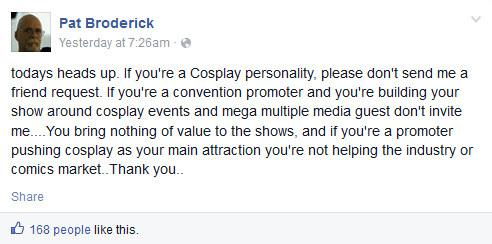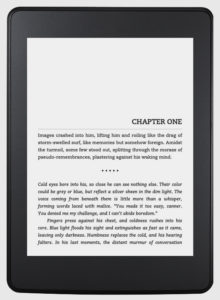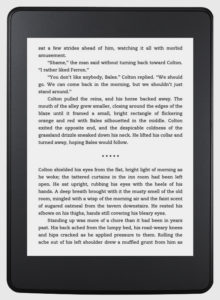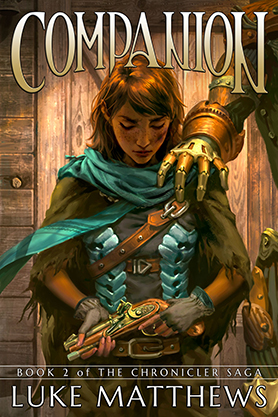To adequately express the beginnings of my gaming hobby, I’d like to tell you about the first television I ever gamed on. It was the early 80’s, and my family had a Curtis Mathis console television. A floor-standing unit in a dark wood enclosure, with a flat top upon which sat other components. The whole thing was roughly three feet tall and slightly wider than that. It had actual click-dials on the front and a whopping 25-inch screen.
When I first started gaming, that top sported a potted plant and a pair of Rabbit Ears. Over the years a number of different components would occupy that space; everything from a turntable to a VHS deck to DVD players. Every console I owned as a kid was eventually hooked up to that TV, but it started with a Commodore Vic-20 in 1982, upon which the most commonly played games were Gorf and Radar Rat Race. It was fucking fantastic.
Throughout the 80’s, I was exposed to a wide variety of gaming systems, but my gaming was dominated by Commodore. My mother used our varying Commodore computers for work applications, but our Vic-20, Commodore 64, and Commodore 128 turned out to be absolutely fantastic gaming machines. At one point, I had over 500 games for our 64, all on 5 ¼ floppy disks. It was a pretty glorious time.
I got my first actual console gaming system – a Nintendo Entertainment System – in 1987. Having been a Commodore devotee (and only in single-digit ages), I was blithely oblivious to the rise of Atari and the industry crash. But the rise of the IBM PC was killing Commodore, so I was extremely happy to see dedicated gaming machines becoming a thing. Through the 80’s and 90’s I owned all manner of machines from an SNES, a GameBoy, a Game Gear, a ColecoVision, and even an Action Max, all of which my parents had bought (ostensibly) for me (even though my mom would steal my GameBoy to play Tetris).
I graduated high-school in the summer of ’95, and hadn’t yet decided where I was going to college. So, I was living at home and working at the local TV station (KTVZ21 in Bend, Oregon), and had – for probably the only time in my life – a ton of disposable income. I watched the chatter over the next couple of months about Sony entering the console gaming market with a system that used (gasp!) CD ROM’s instead of cartridges, and had this kinda funky-shaped control pad. When I saw some of the screenshots for games, I was in.
On launch day, I rushed out of work and into the local Fred Meyer about five minutes before they closed, and managed to grab the first gaming console I ever bought with my own money: A Playstation. I was SO FUCKING EXCITED. I rushed home, tore it open, and got it all hooked up to that very same Curtis Mathis TV. I grabbed the weird controller (no analog sticks on this one, yet), and it felt *perfect* in my hands. I emptied the box looking for the pack-in game…only to realize, too late, that there wasn’t one.
My first night with the first console I could call my own, and I was stuck with only Playstation Picks demo disc to play on it. I spent a good chunk of that first night replaying the demos for ESPN Extreme Games, Jumping Flash, and WipEout (I ignored Battle Arena Toshinden after one play). I watched all the videos on the disk of games like Destruction Derby, Ridge Racer, Warhawk, and Kileak, and went to bed having buried all of my original excitement in a heap of disappointment.
And yet, even with that kind of first impression, Sony had me hooked for life.
That Playstation survived my move from Bend to Seattle for college, the rise and fall of my first long-term relationship, and even an apartment fire. Over those years, games like WipEout, Rayman, Tenchu, Chrono Cross, the Oddworld games, the Street Fighter Alpha series, Legacy of Kain: Soul Reaver, the Twisted Metal games, and Tony Hawk solidified gaming as an inextricable part of my life. Oh, and Soul Blade… I mustn’t forget how, for about a six month period, every Saturday afternoon became a SoulBlade party at my apartment, with between 4 and 12 people in attendance. Those were some good times, amongst which the relationship with my now wife of 16 years began.
It was a surprise to no one that the PS2 was the first consumer product I pre-ordered, and the first for which I waited in line. I entered the line at our local GameStop at 11am for a midnight launch, and I was about 100 people back. And all of these were people with pre-orders, with a separate line for those without. By the time the doors opened, the line was 4-5 people abreast and snaked across an entire floor of Bellevue Square Mall, out the door, and into the parking garage. There was a Babbage’s in the same mall with a similar line.
The PS2 amped up everything that had made me love my PS1. Even with a relatively weak launch lineup (I played a LOT of Frequency and Smuggler’s Run in those early days), it went on to have one of the greatest game libraries in the history of console gaming. It’s a library that’s still playable to this day, with games that stand the test of time better than I ever thought they would.
I had friends, at this time, who were huge fans of the Xbox. No matter how many times I played game on it, I just couldn’t bring myself to love it the way I loved my PS2. I had some great times at Halo LAN parties, but the system could just never compare to the experiences I had with some of my now-favorite game franchises like Jak & Daxter and Ratchet & Clank. If the PS1 was really what solidified me as a gamer, it was the PS2 that made me a true Playstation fan. I never owned nor cared about the Dreamcast, and Nintendo had become an afterthought.
Which is why it came as exactly zero surprise to anyone when my wife and I decided to get in line for the launch of the Playstation 3. Being such a huge Playstation fan was a tiny bit awkward at this point, since I was working for Nintendo at the time. Taking vacation days for the launch of a competitor’s console may not have been the smartest move, but I didn’t really care. This is where my fandom tipped from hardcore to a tiny bit insane. I got off work on a Tuesday night, picked up my wife, and headed to the local Best Buy, where a line had already formed for the 12:01 Friday morning launch. We brought a pavilion to keep the rains off and had an air mattress in the bed of my pickup to sleep in. Yeah, that’s right: we camped in line for two and a half days in the rain and wind for our launch PS3’s.
Through all of that, I honestly tried to get into other consoles. I’ve owned an N64, and Xbox, a GameCube, a Wii and an Xbox 360. None of them ever stuck. The worst was the 360, which we bought for relatively cheap about three years after launch, and it just… sat. I played a bit of Halo on it, and then never touched it again.
Even through nine years working at Nintendo, through the entire lifespan of the Wii, I was still a hardcore Playstation fan. Everything from their console and controller design to their video capabilities to their first-party game properties just drew me in and held on tight. Now, I’ve got a household with three backward-compatible PS3’s, a PS4, a PSP Go (yeah, I’m the guy that bought one), and two PSVitas.
Today, as Japan celebrates 20 years of Playstation, I look back at the 19 years I’ve had them in my life and realized just how huge an impact they’ve had on me as a gamer. Some of my fondest nostalgia still resides in the Nintendo of the 80’s and early 90’s, but as much as I loves me some Mega Man and Super Mario World, there is no gaming company that has influenced me nearly as much as Sony. Well over half my life has been spent gaming on Playstation hardware, and I can’t imagine gaming with anyone else, anymore.
Happy birthday, Playstation. Here’s to another 20 years of awesome.






